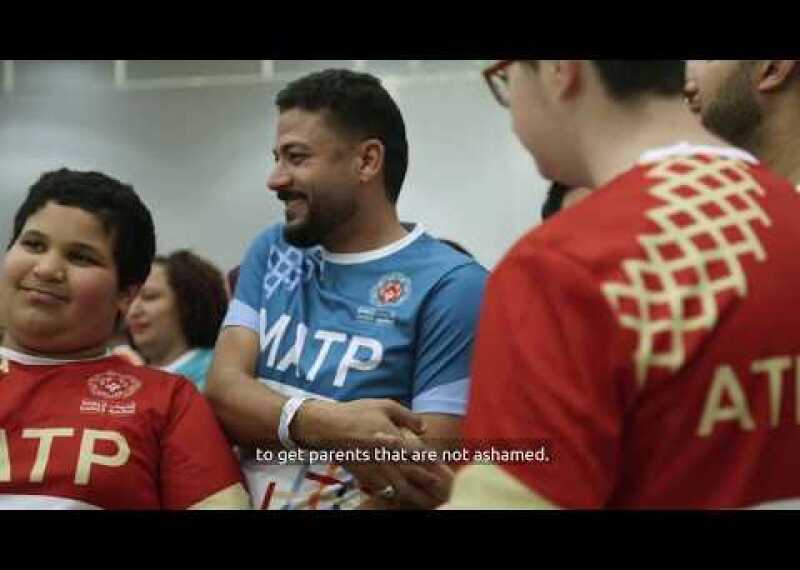
Although my sister left us years ago, the impact she had on my life and the impact that Special Olympics had on her life and my family remains strong.
My sister Betty Sue Rogers, born October 10, 1936 to Ralph and Effie Rogers in the small farming community of Clarksville Texas, was diagnosed in 1977 with autism and Tourette Syndrome. She operated on a second grade level most of her life and grew up in a loving household that did not fully understand her.

My siblings remember the days when our father was patient and loving. For work, he and his uncles built homes and other structures in the community. Farming, hunting and fishing kept food on the table. When he was 31, with a wife and four children at home, my father’s National Guard unit was called up. He deployed to Europe during WW II, entering France in 1944, then Belgium. He fought in what became known as The Battle of the Bulge—a battle in which 80% of his unit suffered casualties. After surviving two months in a foxhole with frozen feet and the continual bombardment by German forces, he returned home to support his growing family. He did the best he could. But he was never the same.
In 1954, our family moved to Dallas, TX, and my father established a cabinet-making business for the burgeoning housing boom. My sister Betty Sue, who was 23 years my senior, became my babysitter due to her inability to work outside the home. At six years old, I didn’t understand why Betty Sue sometimes went away for extended period of time. I would later learn that my mother had her committed to a state mental institution where doctors were administering psychotic drugs and electro-shock therapies to their patients.

In my teen years, I began to understand that what was happening to my sister there was not helping her. She would go into vulgar cussing rants that not only scared me, but it put my poor father in the unenviable position of trying to control her. He would tolerate it only so much before he would chase her into her bedroom, using his fists to beat her into submission. It was not a good scene for an early teen to witness. My parents just did not understand her diagnosis. All they knew is that they couldn’t control her; so she would be committed to the mental institution for another six months. Betty Sue had no idea why the world did not understand her.
Around 1977, my sister Brenda had Betty Sue tested by a caseworker, who diagnosed her as having intellectual disabilities plus possible Tourette Syndrome. As a result, an assisted living facility in Dallas accepted her. Social Security disability benefits paid for her care. My mother was finally able to have her eldest daughter treated by professionals who cared. The facility provided Betty Sue a safe group home, as well as an opportunity to earn spending money folding clothes for a department store. Best of all, the group home helped her get involved with Special Olympics.


At the time, Betty Sue was almost 40 years old and not in good shape. However, she found that running was her super power. She ran races and collected medals, which she was very proud of. I had never before witnessed my sister have any type of self-satisfaction. It not only changed her experience with life, but her demeanor with the family changed as well. She had rages less frequently and even invited us to watch her compete. What a difference that made in her life and ours.
Not only did Special Olympics change Betty Sue’s life, but it changed mine as well. I had grown up in a very confusing situation. It made me shy and not very outgoing. But, thanks to Betty Sue’s involvement with Special Olympics and by living in the group home, my sister was a better person for what remained of her life. I was able to bring friends to relax at my house, whether Betty Sue was visiting or not. What a God send! As a result, I decided to make Special Olympics my primary charitable organization.
Betty Sue passed away in 1994. As time moves on, our family continues to be eternally grateful for the opportunity given to my sister to become and an athlete and a productive member of society. Because of my sister's disability, she couldn't succeed at many things others take for granted. Thanks to her Special Olympic participation, she was able to happily celebrate her achievements as she proudly shared her awards and mountaintop experience with her family.









